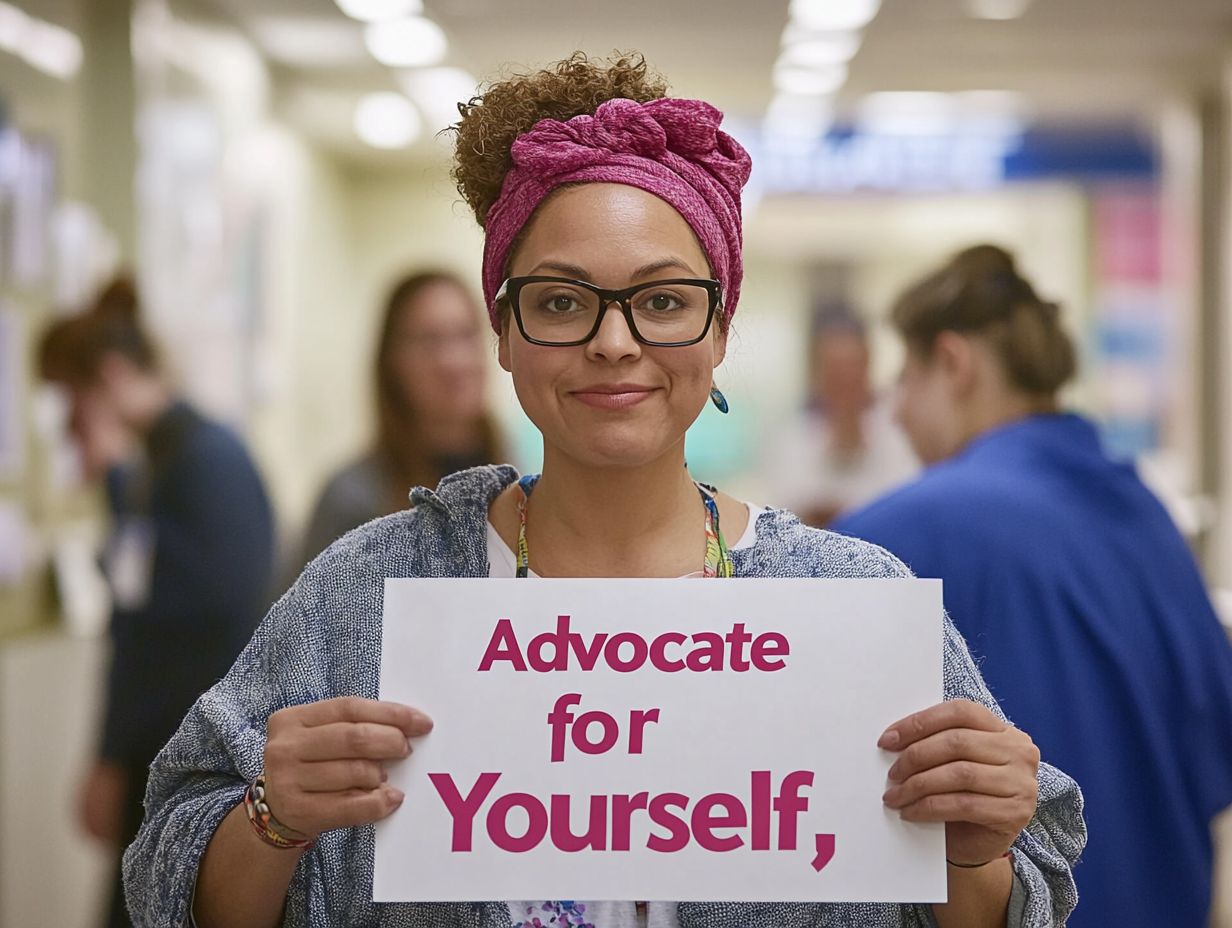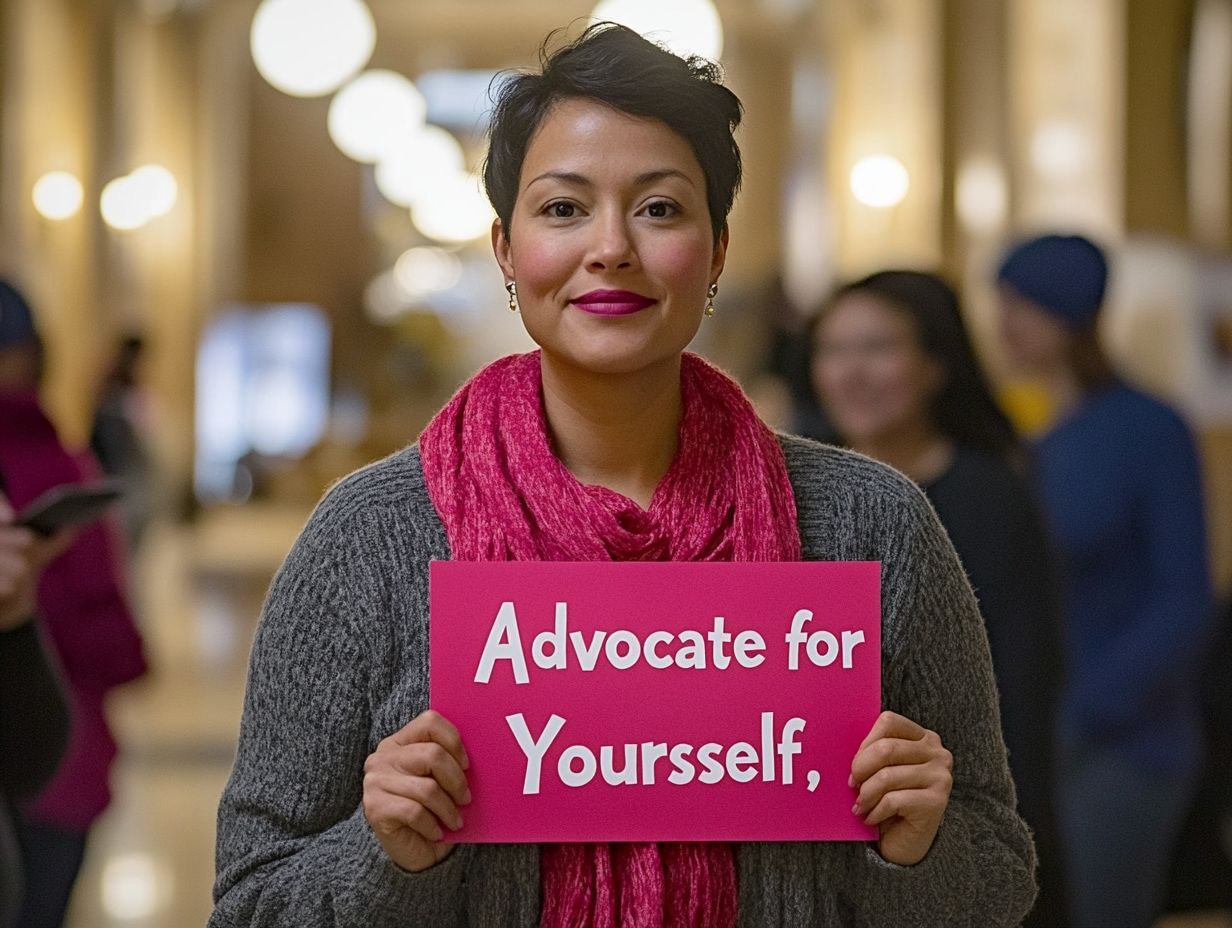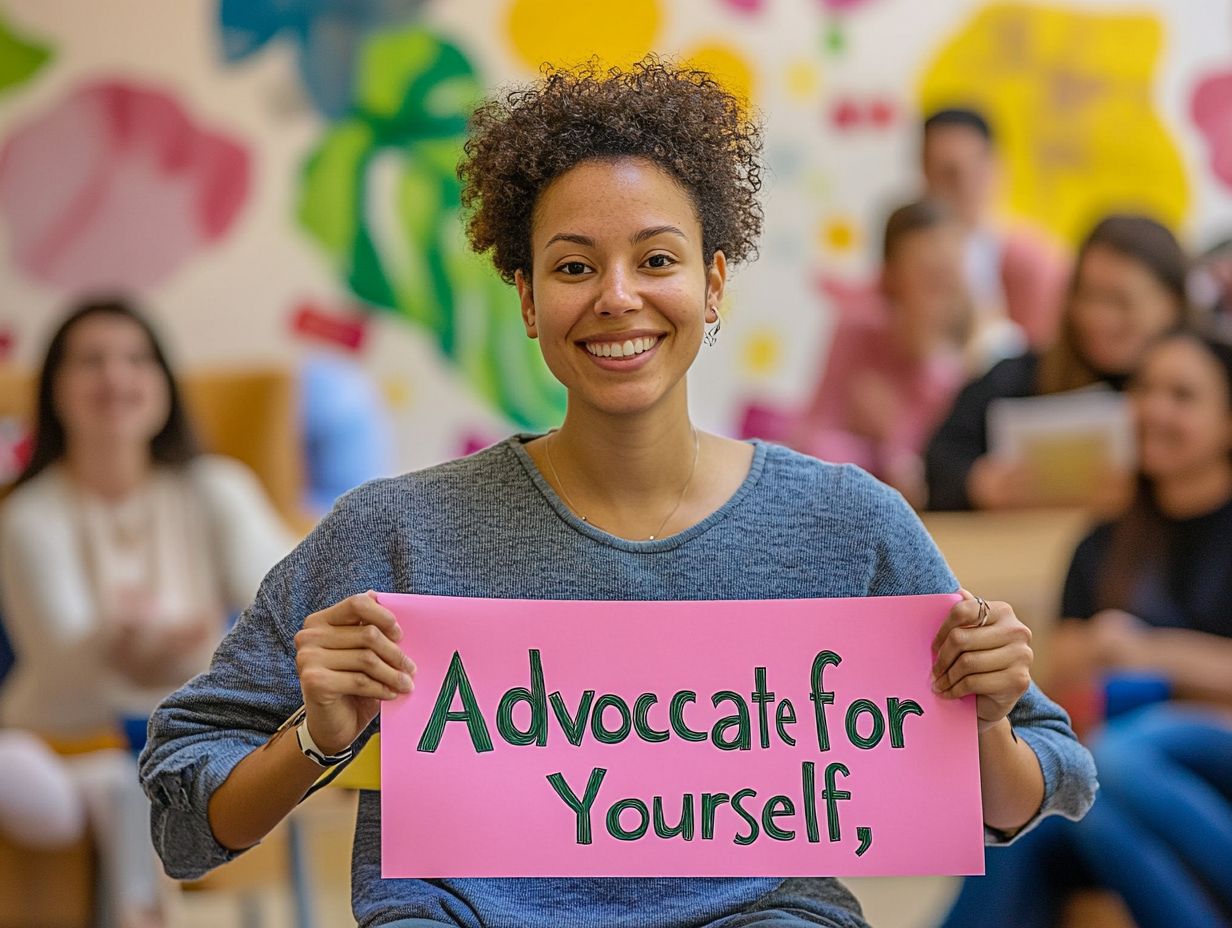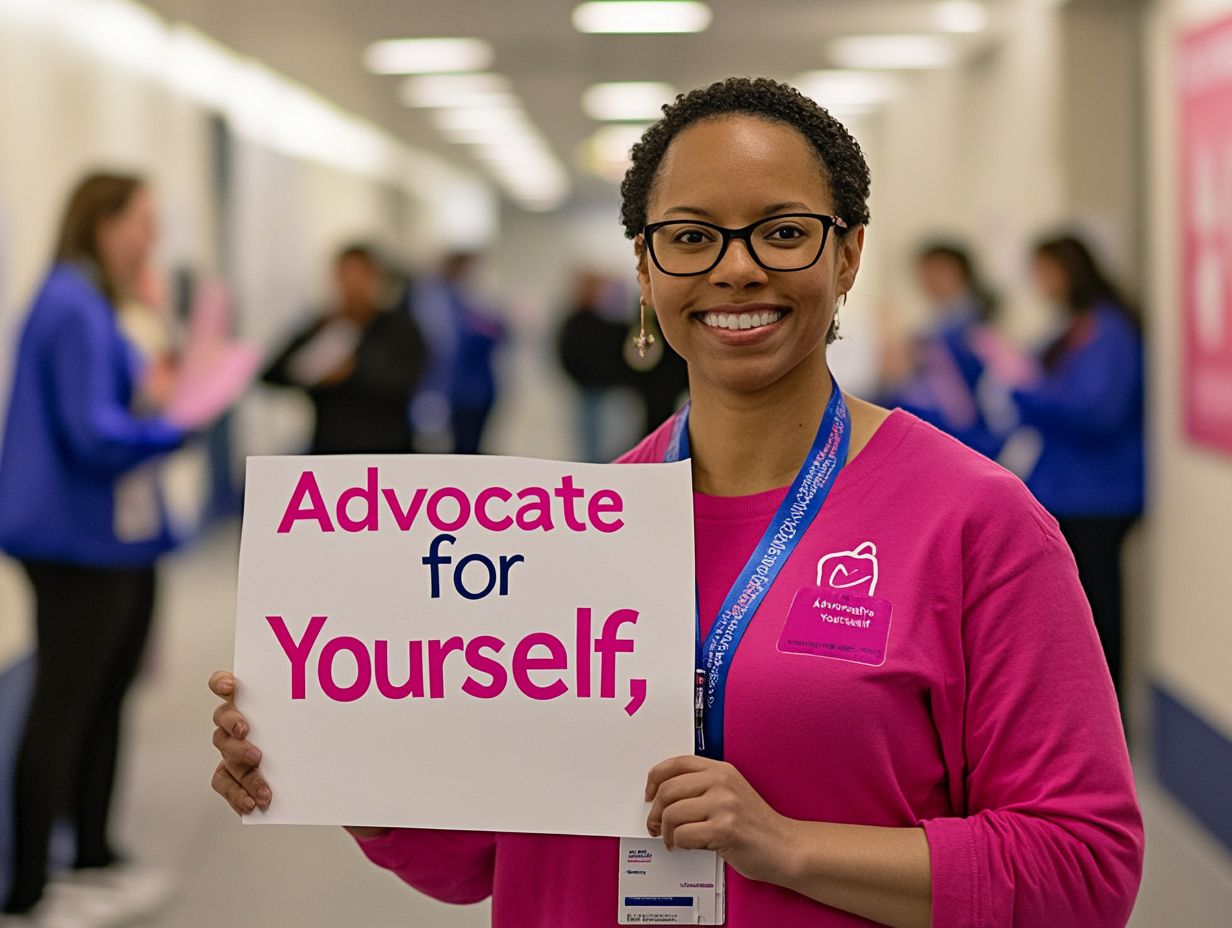Cancer survivorship involves navigating life after a cancer diagnosis, with a focus on physical, emotional, and social well-being. Facing challenges such as fatigue, anxiety, and changes in social dynamics, survivors must actively engage in self-advocacy and advocate for their healthcare needs to improve outcomes and quality of life, thereby becoming empowered patients.
Advocating for yourself as a cancer survivor, which is a crucial aspect of self-advocacy in participatory medicine, includes:
- Effective communication with healthcare providers
- Building a robust support network
- Understanding healthcare rights
- Prioritizing mental and emotional health
Empowering other survivors through shared experiences and support can also foster resilience and community strength.
This guide provides strategies and tips to help cancer survivors advocate for themselves, manage their health, and support others in similar situations. By taking proactive steps, survivors can enhance their well-being and make a meaningful difference in the lives of others.
Key Takeaways:
Understanding Cancer Survivorship

Cancer survivorship refers to the phase of life after a cancer diagnosis, including ongoing treatment options, monitoring for recurrence, and addressing emotional and social challenges, with a focus on patient-driven research and patient participation.
Understanding cancer survivorship involves recognizing the diverse needs of survivors in physical health, emotional well-being, and community support as they transition to post-treatment living, emphasizing the importance of shared decision making and teamwork with healthcare providers.
Defining the Term and Its Implications
Cancer survivorship refers to the phase of life after a cancer diagnosis, focusing on physical, emotional, and social aspects while requiring ongoing healthcare support.
Cancer survivorship involves monitoring for recurrence and managing long-term effects of treatment.
Healthcare providers address the needs of cancer survivors by managing side effects and promoting wellness strategies.
Challenges Faced by Cancer Survivors
Cancer survivors face challenges including physical effects like fatigue, body image changes, and side effects, and emotional challenges such as anxiety and depression, which can impact patient outcomes.
Cancer treatment often leads to long-term health issues and social integration difficulties.
Managing these challenges is crucial for improving quality of life post-treatment.
Physical, Emotional, and Social Obstacles
Cancer survivors face physical obstacles like fatigue, pain, and mobility issues, impacting their daily activities.
Emotional obstacles include anxiety and depression, which affect mental health and identity post-diagnosis.
Social obstacles arise as relationships change, leading to potential isolation due to friends and family unsure how to provide support.
Advocating for Yourself as a Cancer Survivor
Self-advocacy for cancer survivors involves actively participating in healthcare decisions and communicating personal needs and personal preferences to healthcare providers, fostering a strong patient-healthcare relationship and ensuring informed decisions.
Advocating for oneself as a cancer survivor ensures treatment aligns with personal values and can improve healthcare outcomes, contributing to a positive healthcare experience.
Effective Communication Strategies

Effective communication strategies for cancer survivors involve active listening and open-ended questioning to build relationships with healthcare providers and advocate for personal health needs, which are essential components of survivorship care.
Strategies empower survivors to articulate experiences and treatment preferences, enhancing understanding and well-considered choices with healthcare professionals, and promoting patient autonomy.
Regular feedback loops ensure communication strategies align with evolving needs and improve care outcomes, ultimately enhancing the quality of life for cancer survivors.
Building a Support Network
Building a support network for cancer survivors involves connecting with family, friends, and specialized support groups to provide emotional and practical assistance.
This network helps alleviate feelings of isolation and provides shared experiences and coping strategies.
Advocacy training can give the power to survivors to raise awareness and support others in similar situations, fostering hope and resilience in the community.
Navigating the Healthcare System
Navigating the healthcare system involves understanding patient rights, available resources, and coordinating care among healthcare providers.
For cancer survivors, navigating the healthcare system means accessing support services, managing appointments, and understanding treatment options.
Utilizing patient advocacy resources and healthcare navigators can assist in ensuring quality care and maintaining patient autonomy.
Understanding Your Rights and Resources
Cancer patients have the right to access quality healthcare, understand treatment options, and receive support from providers, which can be facilitated through resources like medical information and cancer support groups.
Resources include medical information, health insurance guidance, and support services to ensure informed decisions and cost-effective care.
Understanding these rights and resources give the power tos cancer patients to actively participate in their healthcare journey.
Taking Care of Your Mental and Emotional Health
Mental and emotional health care is crucial for cancer survivors to manage anxiety and depression post-diagnosis and treatment, ensuring a positive cancer journey and engagement with the cancer community.
Effective self-care strategies include:
- seeking support groups,
- practicing mindfulness,
- maintaining a routine to stabilize emotions and enhance well-being.
Self-Care Tips and Coping Mechanisms

Self-care tips for cancer survivors, a part of survivorship care, include engaging in regular physical activity, practicing mindfulness, and exploring creative outlets, which can be discussed with healthcare providers to tailor a personal treatment plan.
-
Physical activity like walking can reduce anxiety and improve mood.
-
Mindfulness practices such as meditation and yoga help manage feelings of overwhelm.
-
Creative activities like painting, journaling, and music provide therapeutic distraction.
Support networks through peer groups or counseling offer reassurance and understanding.
These self-care strategies enhance emotional resilience and overall well-being, supporting patient participation in their care.
Empowering Other Cancer Survivors
Empowering other cancer survivors involves providing support, sharing experiences, and offering resources such as medical journals and peer-reviewed studies to help them navigate recovery, strengthening the cancer community.
Empowerment can include:
- Organizing support groups
- Sharing success stories
- Providing information about treatments and coping strategies
Encouragement and community engagement are key elements in empowering cancer survivors, fostering resilience and hope, and promoting advocacy skills within cancer-related groups.
Ways to Give Back and Make a Difference
Cancer survivors can give back and make a difference by mentoring patients, raising funds through cancer organizations, and participating in advocacy initiatives.
Mentorship programs allow survivors to support current patients, promoting advocacy training and improving the patient-healthcare relationship through shared experiences.
Joining organizations helps raise awareness and funds for research.
Advocacy skills training empower survivors to address issues in cancer care, facilitating shared decision making, and enhancing the patient-healthcare relationship.
Frequently Asked Questions
How Can I Advocate for Myself as a Cancer Survivor?
Advocating for yourself as a cancer survivor is important to ensure that your needs are met and your voice is heard. Here are some ways you can advocate for yourself:
What is self-advocacy and why is it important for cancer survivors?

Self-advocacy is the ability to speak up for yourself and your needs. It is important for cancer survivors because it allows you to take control of your health and well-being, and ensures that your needs are met during and after treatment.
How can I communicate my needs to my healthcare team?
Effective communication is key when advocating for yourself as a cancer survivor. Be open and honest with your healthcare team about your needs, concerns, and questions. Write down your concerns beforehand and bring them to appointments to ensure that you don’t forget anything.
What should I do if I feel like my healthcare team is not listening to me?
If you feel like your healthcare team is not listening to you, don’t be afraid to speak up and be assertive. You can also consider seeking a second opinion from another healthcare provider to ensure that you are getting the best care possible. Remember, you are your own best advocate.
How can I advocate for myself in the workplace as a cancer survivor?
If you are returning to work after cancer treatment, it’s important to advocate for yourself in the workplace. This may include requesting reasonable accommodations, such as a flexible schedule or modified duties, and educating your employer and colleagues about your needs and limitations. Remember, it is your legal right to receive accommodations under the Americans with Disabilities Act (ADA).
What resources are available to help me advocate for myself as a cancer survivor?
There are many resources available to help you advocate for yourself as a cancer survivor. These may include support groups, online communities, and organizations specifically dedicated to empowering and supporting cancer survivors. Your healthcare team may also be able to provide you with resources and referrals to help you navigate your cancer journey.





